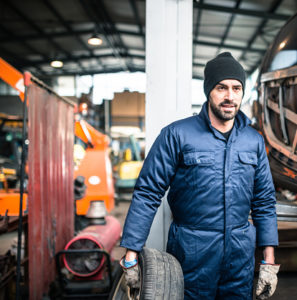
Sometimes in medicine, analogies work great. Here’s one for your consideration. Imagine a tire with an inner tube inside. Now think of the outer tire as your abdominal wall, and the inner tube as your intestine underneath. If the outer tire develops an opening, then the inner (intestinal) tube can peek through that hole. That’s what having an inguinal hernia is like, and you’ll know you have one if you experience groin pain and can feel the lump of an “inner tube” poking through your “tire.”
If that sounds like what’s happening to you, then step one is to get an exam for a proper diagnosis.
Your doctor might tell you that your hernia is mild enough to be left alone, with some home care tips and general health awareness. However, if it requires some operational intervention, your physician will explain various strategies ideal for your situation.
The Boston Hernia Perspective
At our clinic, 90 percent of the patients who come to our practice receive the same recommendation, and that’s for Advanced Open Pre-peritoneal Inguinal Hernia Repair. That’s quite a mouthful, so I just call it Fast Recovery Inguinal Hernia Surgery. As someone who has performed thousands of hernia procedures using every method, I can tell you that it’s the most proven approach for an easy recovery and the diminished likelihood of hernia recurrence.
How It’s Done
After administering local anesthesia and sedation (or in some specific cases general anesthesia), I make a small incision just above the hernia location and gently push the protruding tissue back into the abdomen where it belongs. Then, I clear the weakened abdominal area and reinforce it with a synthetic mesh (hernioplasty). The mesh sits under the muscles, away from dangerous nerves, avoiding mesh-related complications. After that, I close the entry incision with dissolvable, or melting stitches. Patients are up-and-about an hour later, and our team explains their recovery program before sending them home.
The Alternative
There are several reasons why I recommend Fast Recovery Inguinal Hernia Surgery vs. Laparoscopy – which involves three small incisions, inflation of the abdomen using gas, and sometimes usage of expensive robotics to perform the procedure. What we are saying here is counter-intuitive. Why would open surgery be better than laparoscopic? Below are a couple of reasons.
Laparoscopic repair can increase the risk of complications and the recurrence of another hernia. Laparoscopy requires general anesthesia, something many patients like to avoid when they safely can. The biggest benefit of Laparoscopy is a smaller scar. But I don’t feel like that’s a bonus at all, given the advantages of the Fast Recovery Inguinal Hernia Surgery performed successfully at Boston Hernia. To tie back to the tire analogy, Fast Recovery Inguinal Hernia Surgery is like having your busted tire fixed by a professional at a reputable shop, intended for long-term, good-as-new use.

